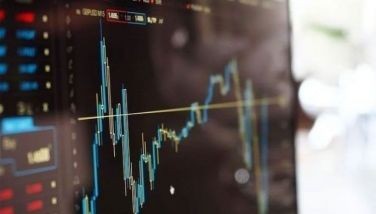Commentary: Shift from global trade competition to diplomacy
The Philippine peso's value was at a seven-year low against the US dollar at Php48.25 last Monday, September 26, 2016. It was the weakest since the peso was at P48.33 against the US dollar on September 15, 2009. [Note: P48.34: $1 as of Oct. 10, 2016]
Concerned financial stakeholders view this as a setback for our economy since it could trigger price increases because of higher import costs and, most likely, a high interest rate.The biggest “fatalities’ of this economic and financial flux will be oil and oil by-products, which we import.
Generally, such volatility is an offshoot of external factors that local financial authorities have no direct control of. While local financial environment should not be destabilized by such worldwide monetary movements, unwarranted negative perceptions bring a chilling effect to local financial stability.
That the depreciation of the peso will negatively affect the local economy is both a myth and fact.
For more than half a decade, the US dollar has taken a beating from other currencies. In that period, the peso has gone down, if not remained stagnant (a sign of economic inactivity) against other currencies.
This was also true against other currencies that belong to the “Ivy League” nations. Locally, it may result in an inflationary trend, but the more beneficial effect is the higher revenues that the export market could generate.
The stream of dollars remitted to the local economy by Overseas Filipino Workers will also have greater returns while Filipinos who invest abroad and whose revenues are sent to the Philippines will also earn more. These all add up to the country’s foreign currency reserves, which defines our financial stability with the rest of the world.
Internationally, the high dollar value signifies more investments and transactions. The once sleepy western economies have now reclaimed their status as the leading market of the world.
In the not so distant future, the benefit of robust business activity will redound to the development of the economy of the rest of the world. Emerging economies more particularly stand to benefit from the hub of international trading and technological advancement.
Technological transfer, which benefits emerging economies like the Philippines, is the biggest incentive a country can get from such a robust globalized interchange.
For all intents and purposes, countries with strong trade and diplomatic accords would rather contend with congested and robust trading characterized by an inflationary regime rather than an economic slowdown that could negatively impact employment or, worse, bring about the protracted recession that brought down once stable firms in the West in the early 2000s.
In this era of cyber technology, it is not uncommon to consummate transactions in the blink of an eye. When once one needed to exert extra effort to reach out to local and global markets, it can now be done in the comfort of one’s home.
Most technology and entrepreneurial-minded individuals or firms can now conveniently shift from a capital-labor intensive technology to an automation-based one. Such innovation in world trading has immensely contributed to the ease of doing business both locally and internationally.
To think that we should rely on trade with a few countries for our survival in global competition is a half-truth. The modern world has set the tone for opportunities that we can grab. It is up to us to choose and rely on our own competitiveness.
Regardless of our skills compared to the rest of the region, we can always rely on our competitive advantage over other countries. After all, the competition that we and other countries offer is meant to improve global diplomacy and not to create animosity in the community of nations.
Emmanuel J. Lopez, Ph.D. is an associate professor at the University of Santo Tomas and the chair of its Department of Economics. Views reflected in this article are his own. For comments email:[email protected]
- Latest
- Trending



























